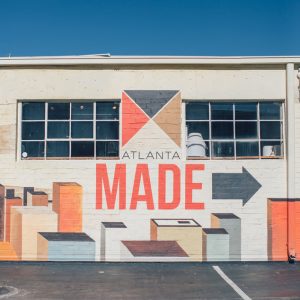By: Felipe Rivas

2 min read June 2020 — Virtually every sector of the economy has been pinched, crushed, or depleted by the initial impact of the coronavirus pandemic. Months into the “new normal,” industries and businesses have had to adapt operations to cope with COVID-19-related challenges. While many businesses remain embattled by the current economic cycle, innovation and opportunity are beginning to rise from the initial shocks of the novel coronavirus.
In the Peach State, a region known for its sound business environment and one of the first states to reopen its economy, leaders across economic sectors in Atlanta are analyzing the opportunities and possible innovations created as a result of the virus outbreak. For the legal industry, an industry already comfortable with remote work prior to COVID-19, technology is at the forefront of the evolution of the sector’s business model and best practices. “I believe that remote depositions, virtual oral arguments, and maybe even some virtual trials are here to stay,” Holland & Knight Immediate Past Executive Partner J. Allen Maines told Focus: Atlanta. “These new technologies are easy to arrange and the cost-benefit analysis is pretty compelling for implementation, although It may still be necessary to have an in-person interview in order to size up the credibility of key witnesses. The virus has forced law firms to accelerate their adoption of technology and training,” he said. As businesses and law firms embrace the benefits of balancing in-person and remote work, it is likely the need for office space will change as well. “Currently, law firms can do everything electronically and remotely. I would expect law firms will not use the amount of office space that was customary in the past,” Maines said.
The coronavirus landscape may possibly have positive residual effects related to work-life balance for lawyers and the way in which law firms think about pro bono work. “Hopefully, one permanent change will be a focus on the well-being of lawyers, which has been real positive during this time,” Maines said. “Another positive that has emerged has been an even greater pro bono assistance to the underserved and vulnerable communities. A lot of our clients have employees in the gig and hospitality industry and it has been rewarding to help them get through this period.”
Similarly, for Atlanta’s construction sector, some projects were halted as a result of the initial COVID-19-related shocks, while other projects continued a successful trajectory. “The COVID-19 crisis was completely unpredictable, which has caused significant disruption to the economy,” DPR Construction Business Unit Leader Chris Bontrager told Focus: Atlanta. “We have continued to see success in the healthcare sector through March and April but some of the private commercial work has been put on hold. So far, we have weathered the storm very well,” he said. DPR has been running multiple scenarios to account for the current volatile economic cycle. “No one knows the true impact of COVID-19. Relatively speaking, the Southeast is doing well. The market was very strong prior to COVID-19 and our industry was deemed essential from day one in the Georgia market. We have had some projects that we were unable to start but we have not had any ongoing projects that were shut down,” Bontrager said. “It feels like most contractors will maintain a positive year for 2020 due to a strong backlog going into this recession and the construction community won’t truly feel the recession until the first half of 2021. If the project owners move forward with current plans, we will finish the year at or just below our current business goals.”
To learn more, visit: https://www.hklaw.com/en/professionals/m/maines-j-allen
